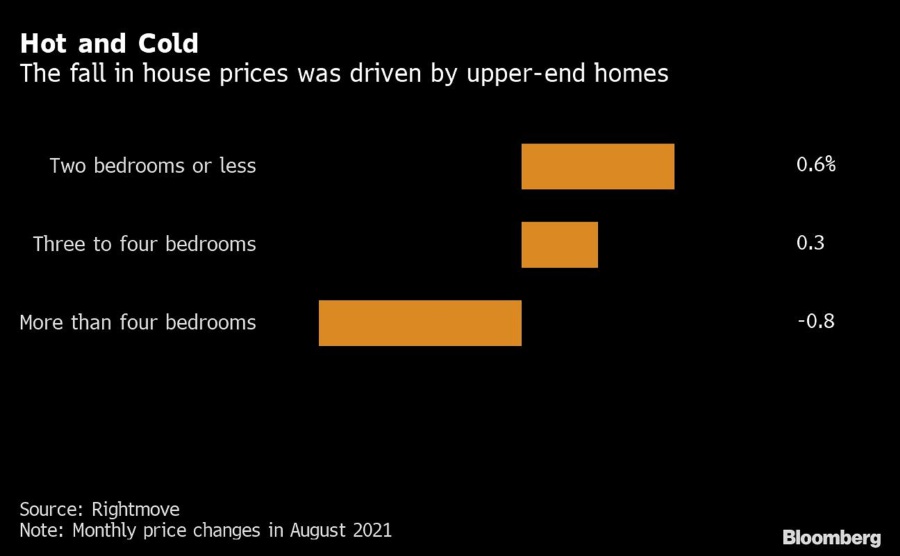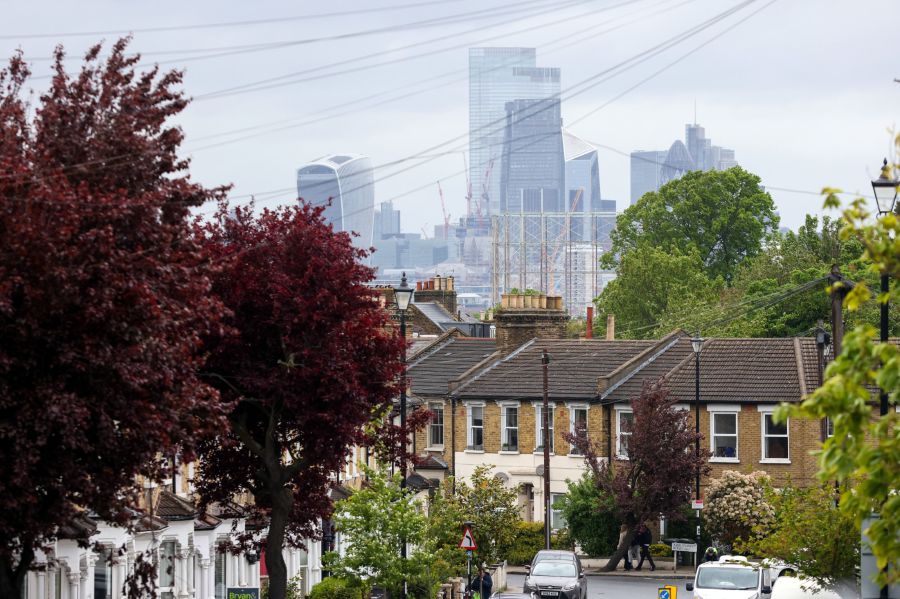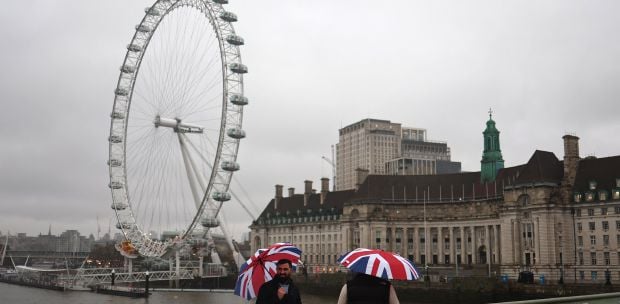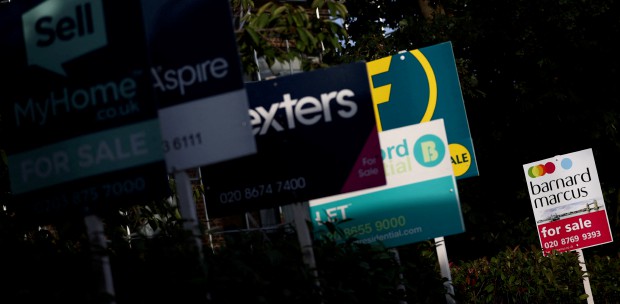Asking prices for homes fell in the U.K. for the first time this year as demand slowed for most expensive properties, Rightmove said.
The average value sellers are seeking slipped 0.3 per cent this month, driven by a sharper drop in in homes worth 616,421 pounds (US$854,000), the nation's biggest property website said Monday. The value of smaller and cheaper homes hit a record.
The government has started tapering back a temporary tax break on property purchases, which boosted prices despite the recession. This disproportionately hit demand for bigger houses, where sellers saved the most on stamp duty. Rightmove's findings confirm other readings of the market that show momentum slowing after a frenzy to complete transactions before the tax break lapses.
"Prices only fallen in the upper-end sector, which is usually more affected by seasonal factors such as the summer holidays and has also seen the greatest withdrawal of stamp duty incentives," said Tim Bannister, director of property data at Rightmove.

Buyer demand remained strong in the first week of August, up 56 per cent compared to the same period before the pandemic. Homes are selling at the quickest rate on record, one month faster than before the first lockdown.
"We anticipate that more property will come to market when those owners have more clarity over their employers' long-term balance of home and office working," Bannister said. "If it's going to be less restrictive in the long term then that means less need to live close to transport networks, and a greater need for home working space." - Bloomberg





